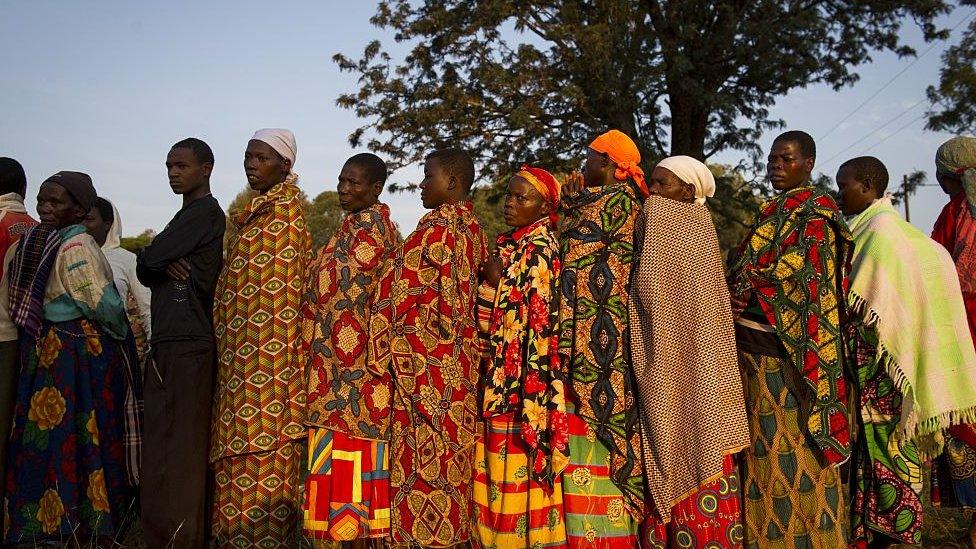Willy Nyamitwe's shooting: Burundi blames Rwanda
- Published
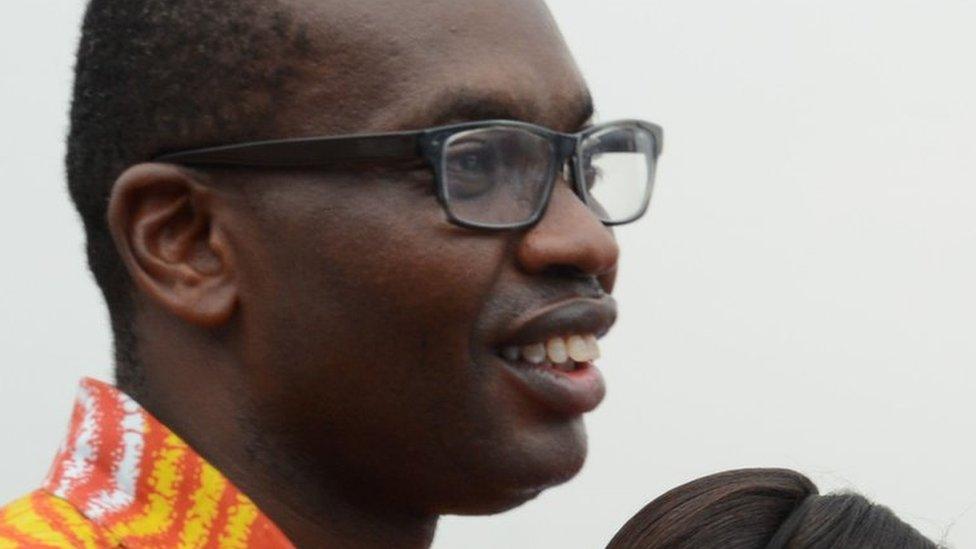
Mr Nyamitwe is the most public face of the government
Burundi has accused neighbouring Rwanda of being behind a failed assassination attempt on a top aide of President Pierre Nkurunziza.
Police spokesman Pierre Nkurukiye said instructions were sent from Rwanda to plotters in the Burundian military to kill Willy Nyamitwe.
A Burundian colonel and two corporals had been arrested, he added.
Rwanda has not yet commented on the allegation. It has denied similar allegations in the past.
Relations between the two states have deteriorated over the last year.
Burundi accuses Rwanda of hosting army officers who plotted a coup against Mr Nkurunziza in May 2015 after he announced he was running for a third presidential term.
"Rwanda's role in the current crisis in Burundi is undeniable," Mr Nkurikiye said. "It is the same enemy, they are criminals based in Kigali."
In a statement, external, the Burundian government also urged Belgium to hand over an opposition activist, Pacifique Nininahazwe, accused of inciting attacks. Mr Nininahazwe denies, external this.
More than 500 people have died and at least 270,000 have fled the conflict in Burundi.
The attack on Mr Nyamitwe, Mr Nkurunziza's media adviser and chief spokesman, happened near his home in the Kajaga area outside the capital, Bujumbura, on Monday evening, officials said.
One of his bodyguards was killed and another injured, while Mr Nyamitwe was slightly wounded on his arm.
One of the corporals was arrested in Kajaga, Mr Nkurukiye said.
In July, a Burundian MP in the East African parliament, Hafsa Mossi, was gunned down in Bujumbura in an attack the government said was directed by Rwanda.
In a tweet, external in French, Mr Nyamitwe said he was "doing well" but was mourning the death of his bodyguard.

"I thank those who wish me a speedy recovery. I am doing well but (am) saddened by the death of a best friend, the policeman Gasongo"
Burundi's UN ambassador Albert Shingiro said the attack had been carried out by an "axis of evil" that had "cast Burundi into a shadow since 1962" - a reference to violence that followed the country's independence.
Mr Nyamitwe's brother Alain Aime Nyamitwe, who is Burundi's foreign minister, denounced the shooting as "another vain attempt to disturb republican institutions".

"Thank God, Willy Nyamitwe narrowly escaped an attack by the axis of evil that has cast its shadow over Burundi since 1962"

President Nkurunziza won a third term in July 2015 in an election described by the opposition as a "joke" after an attempted coup by army officers failed.
In September UN investigators said thousands of people had been tortured, suffered sexual abuse or disappeared and warned of the danger of genocide.
Burundi responded by banning the investigators from the country.
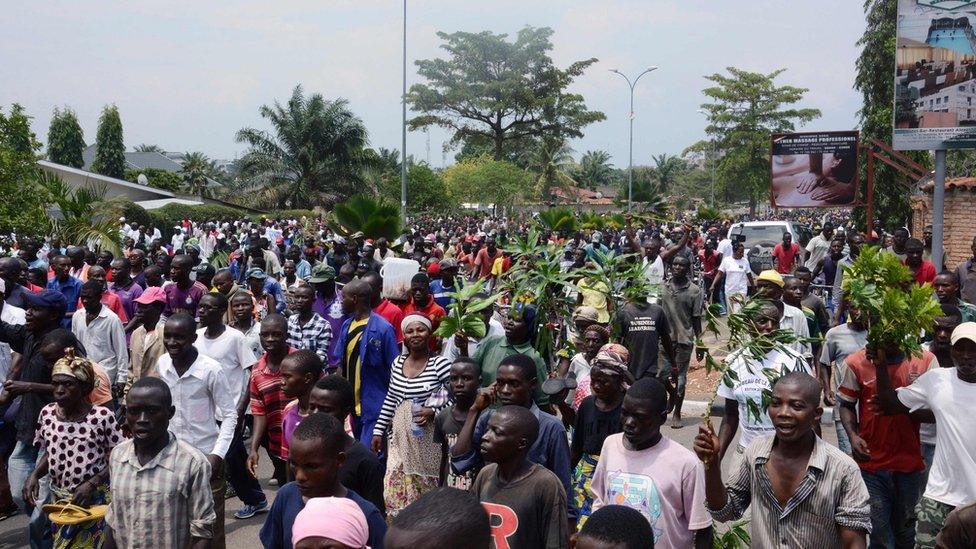
Protests over international criticism of Burundi's government have been held in Bujumbura
Burundi is also one of three African countries to have announced their intention to withdraw from the International Criminal Court (ICC) in The Hague, which has only ever tried African defendants.
The decision came six months after the ICC said it also wanted to investigate the violence in Burundi.
- Published11 October 2016
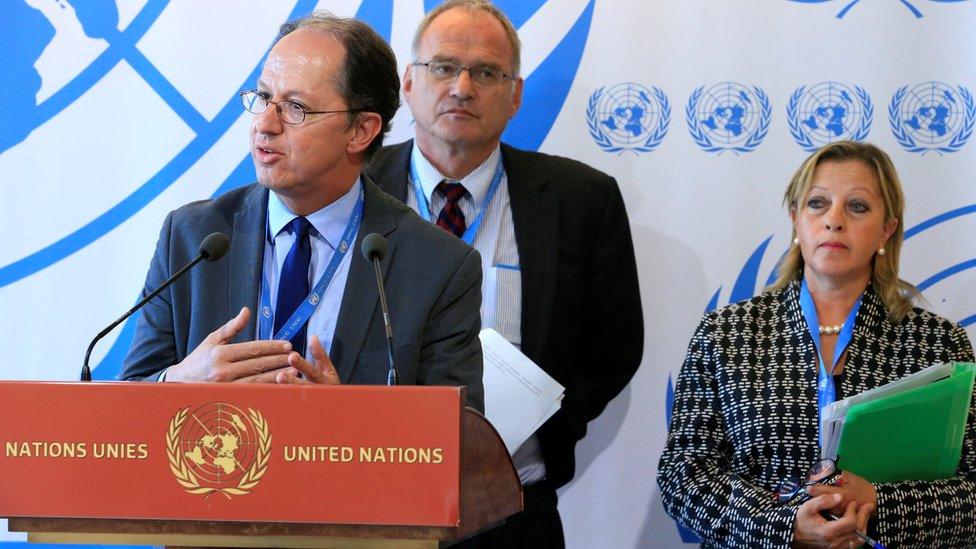
- Published1 February 2016
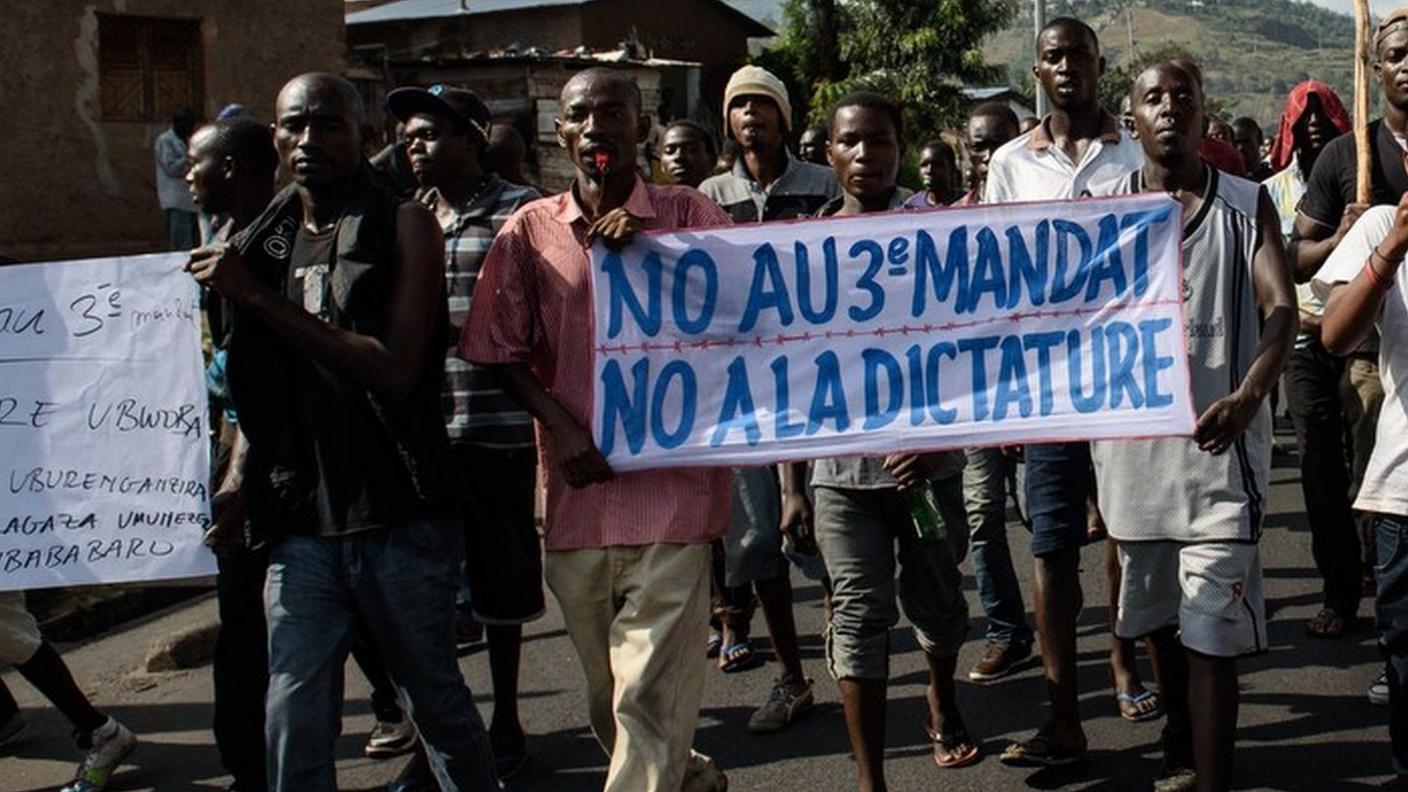
- Published2 December 2015
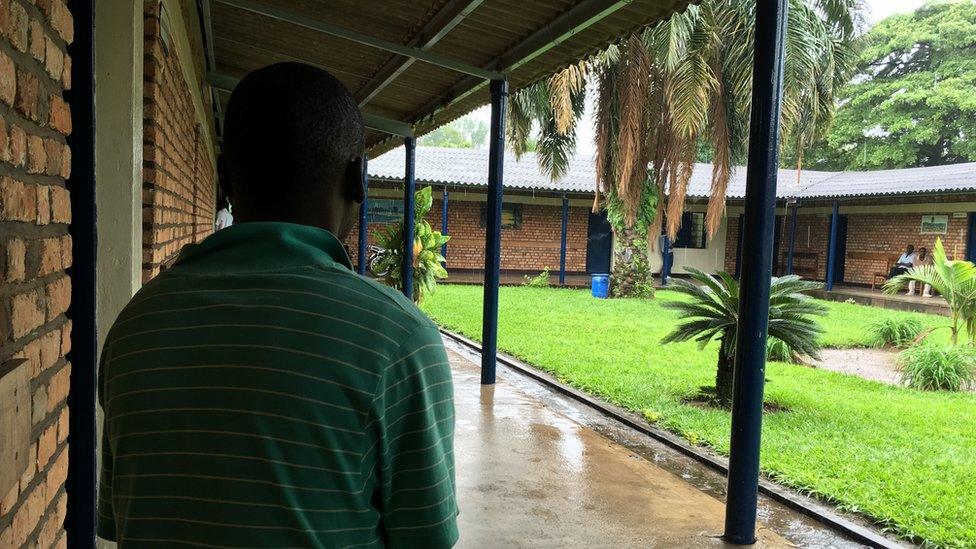
- Published3 November 2015
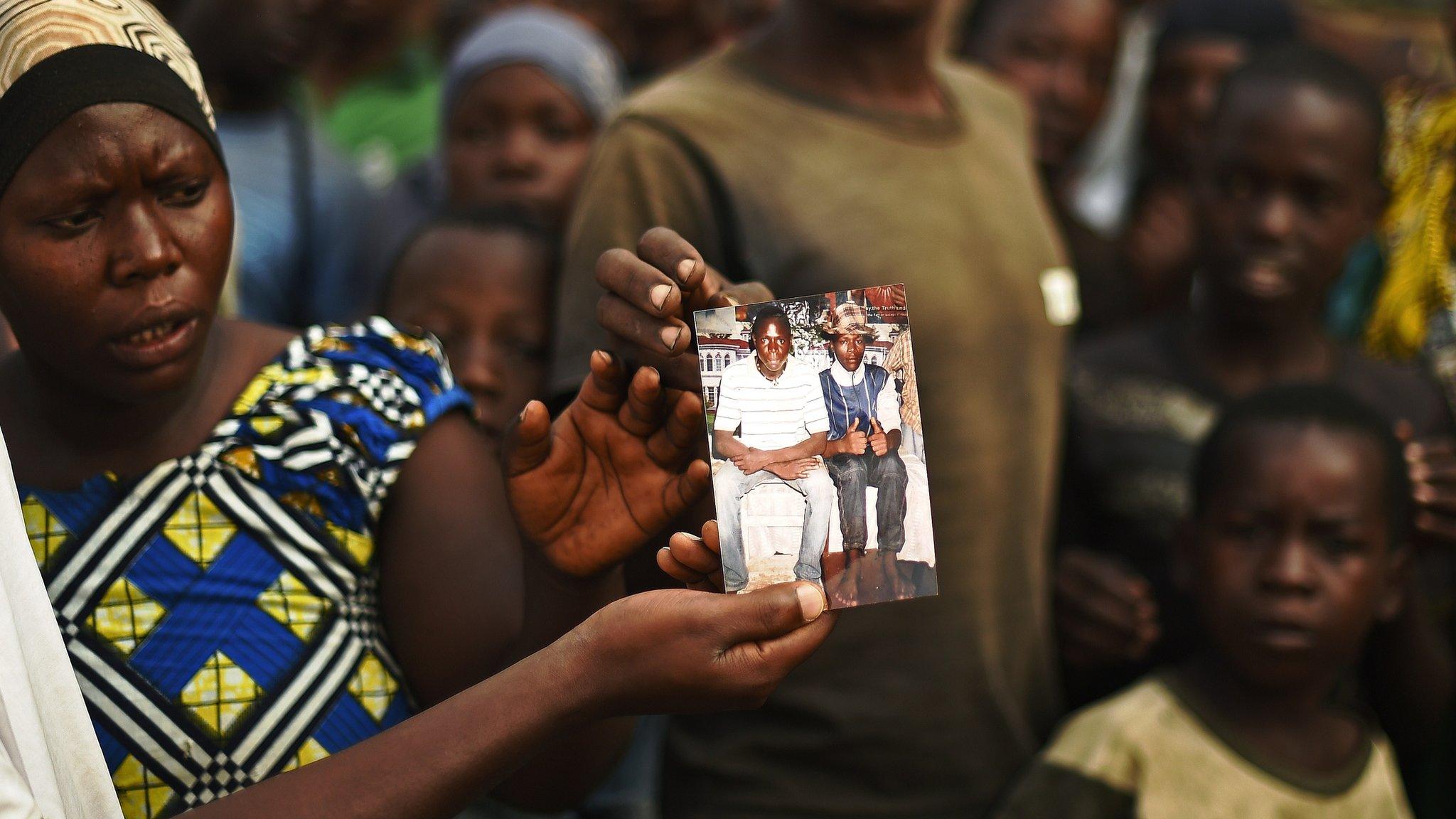
- Published4 November 2022
